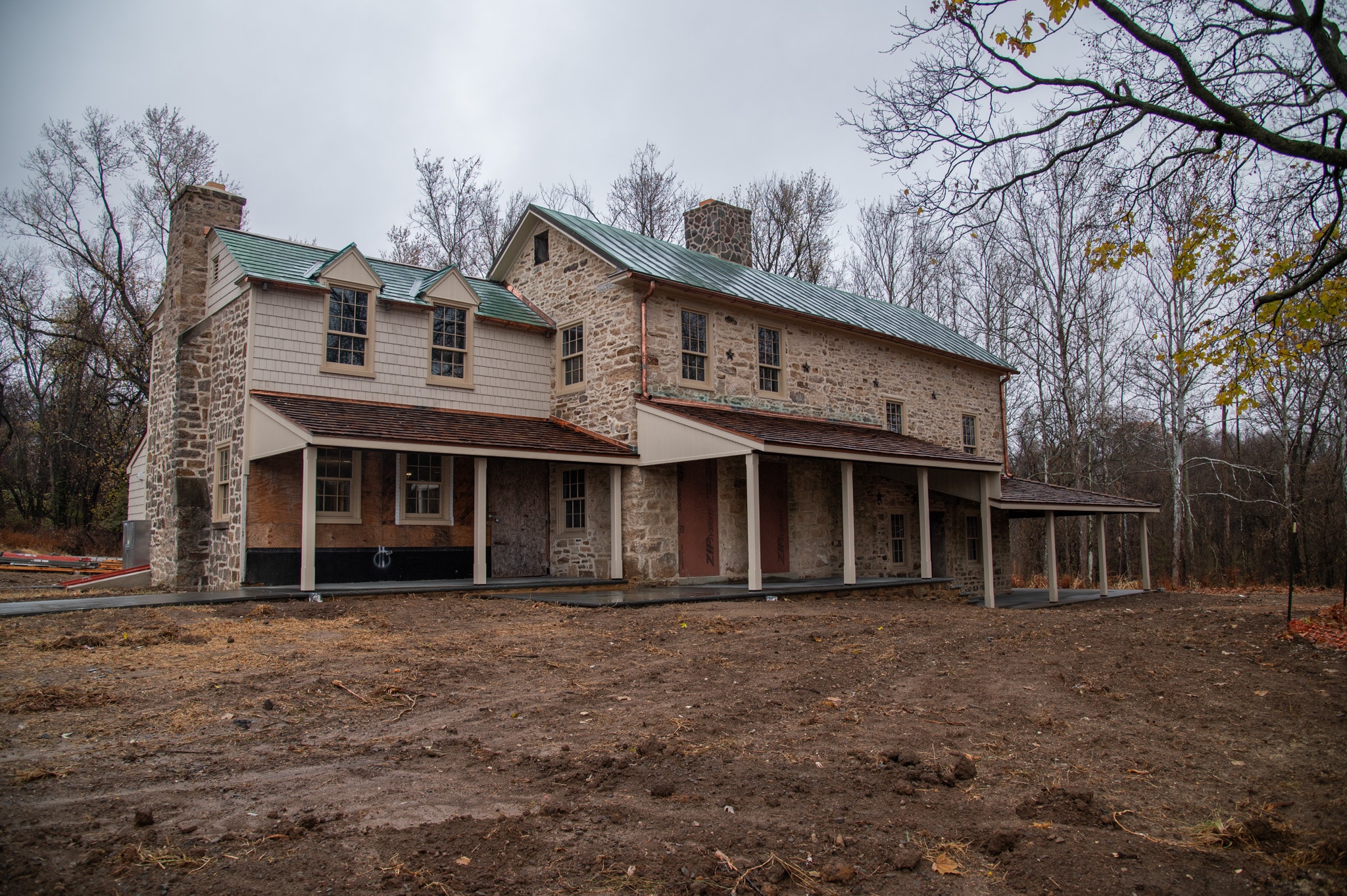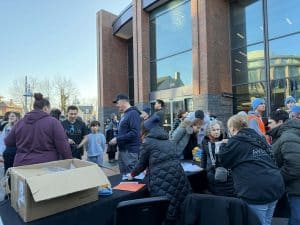After 50 years the vacant 32-acre Boone Farm in Middletown Township will become a mainstay in the history of Bucks County’s African Americans.
Bucks County Commissioners affirmed a long-term lease agreement with the African American Museum of Bucks County at a regular business meeting Wednesday to lease the renovated Boone Farm property in Middletown Township for $1 a year for the next 29 years.
While the county owns the property and is responsible for site improvements, exterior refurbishment, “core and shell” construction and basic systems, museum benefactors will pay for interior renovation and build out to the structure, said Bernard A. Griggs, Jr., Bucks County interim director of operations.
Bucks County officials confirm total contracts for “core and shell” construction were an estimated $4.42 million.
“The community is overwhelmed with joy to see [the renovation] a show piece from the street,” Griggs said of the Boone Farm property.
The museum has offered traveling programs as a mobile exhibit space since 2014. Museum organizers aim to raise $2 million to complete the restoration and move into the Boone Farm – by the end of the year.
The roughly 307-year-old building has longstanding ties to African Americans in Bucks County.
Quakers Bucks.org said Boone Farm at Core Creek Park is one of the most historic properties in Bucks County.
Portions of the property are listed on the National Register of Historic Places. The Godfrey-Kirk House, built for artisans and named for the mason who built it, was converted to a farm, The Philadelphia Tribune said.
Grace Boone, the last family member to own Boone Farm and a widow with no descendant heirs, sold the property to Bucks County before her death in 1972, Hidden City Phila.org said.
Some of those African Americans fleeing the American South during the Great Migration years (1910 to 1970) stopped in Bucks County. While the original destination was New York, many found paying work at Boone Farm and stayed here instead, Linda Salley, president and executive director of the African American Museum explained in a video.
READ: A New Era of Leadership for Bucks County’s NAACP Begins: Adrienne King’s Vision for Equity and Unity
According to the National Archives, The Great Migration of 6 million African Americans moved to the North, Midwest and West from the American South from about 1910 to 1970.
“From here all the way across to (Interstate) I95 there was nothing but farms. When the Great Migration started, so many people left the south – from North Carolina, South Carolina [and] Georgia. They travelled to Bucks County. They were headed to New York but they heard about a farm, Boone Farm, that was hiring,” Salley explained.
Working for wages was the start of a real life and independence for those hired at Boone Farm. They settled in Bucks County and made it their home. They had families and raised their children here.
Bucks County has strong ties to the Underground Railroad during the American Civil War (1861-1865).
Many African Methodist Episcopal (AME) churches in the county were part of the mission to rescue slaves. From Bristol to Quakertown taverns, churches and private citizens were stops along the Underground Railroad route; points to the north and freedom.
“African American history is American history,” Salley said.






